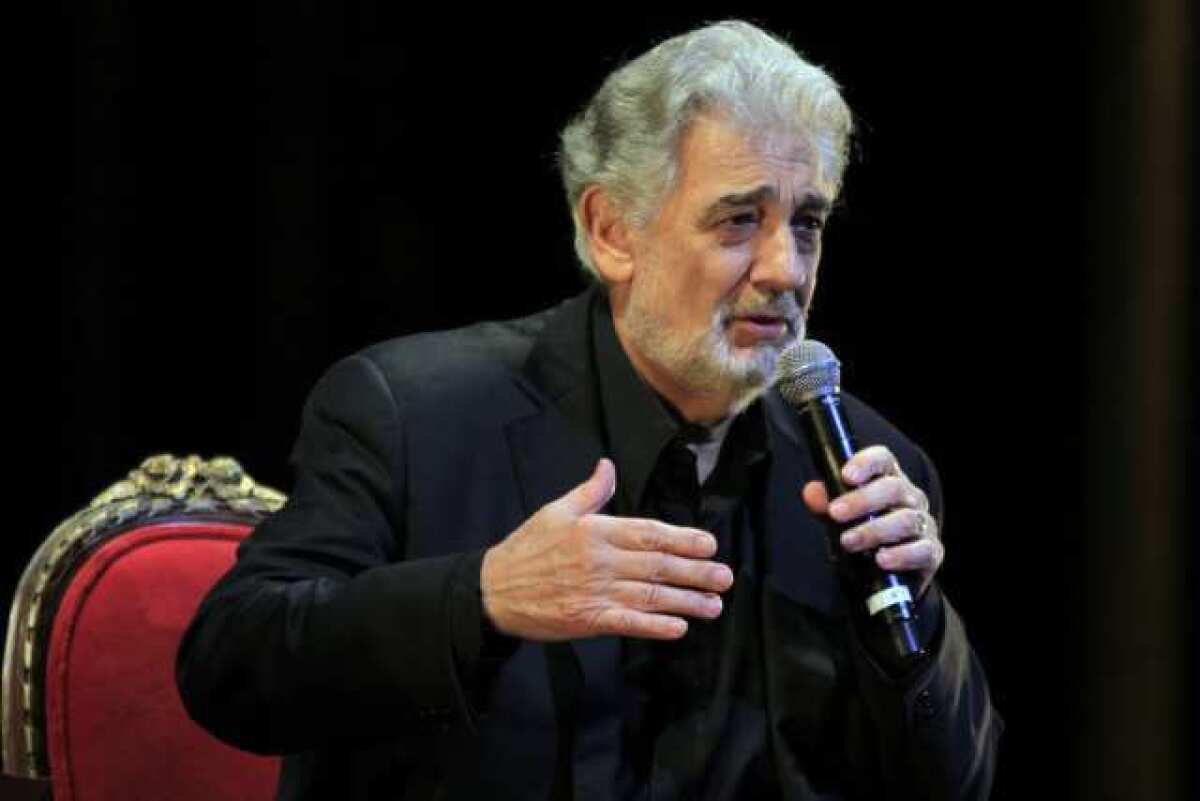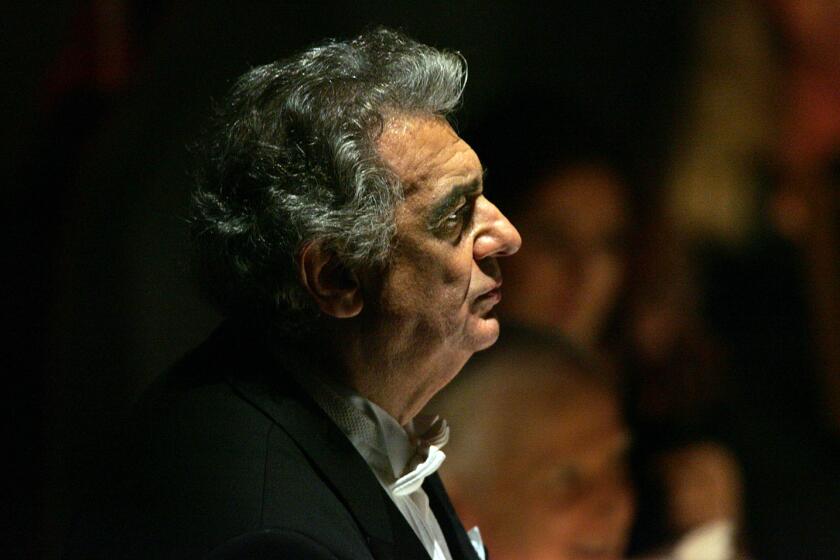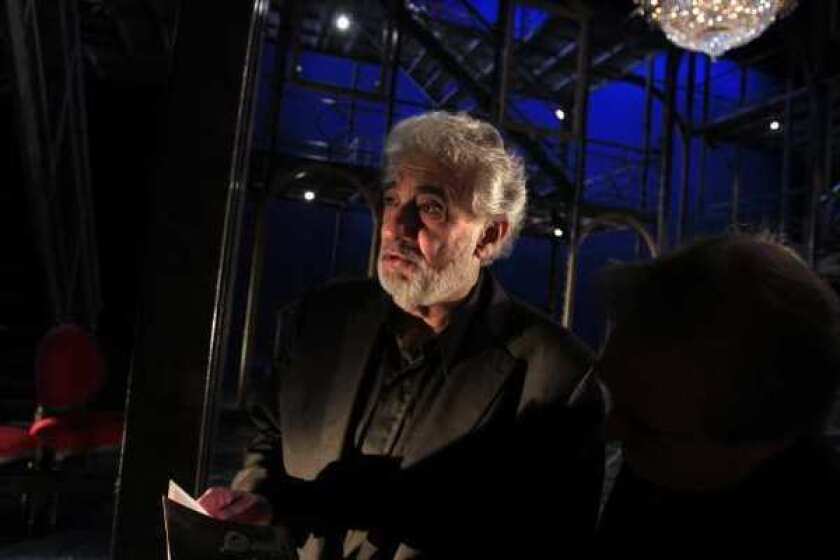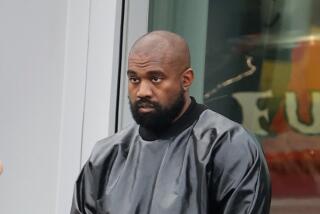Plácido Domingo, two days after sexual harassment apology, goes back on the offensive

- Share via
Two days after issuing an apology for behavior that resulted in multiple allegations of sexual harassment, troubled opera star Placido Domingo has once again gone on the offense.
The tenor issued a new statement saying that his original statement had been misinterpreted as an admission of guilt by some members of the press and that, although he stands by the apology part, he needed to make clear the following:
“I know what I have not done and I’ll deny it again. I have never behaved aggressively toward anyone, and I have never done anything to obstruct or hurt anyone’s career in any way,” the new statement said. “On the contrary, I have devoted much of my half century in the world of opera supporting the industry and promoting the career of countless singers.”
“I am truly sorry,” Plácido Domingo says as the union representing opera performers prepares to release the findings of its investigation.
It was a stunning 180-degree turn in a messy sequence of events that began late Monday with the release of the apology. It continued into Tuesday morning when the American Guild of Musical Artists released the findings of its investigation into allegations of sexual harassment against Domingo, saying it had found him guilty of engaging in “inappropriate behavior, ranging from flirtation to sexual advances.”
After that, a story quickly appeared in the New York Times alleging that Domingo and AGMA were working on a deal in which Domingo would pay a $500,000 fine and AGMA would limit its public statements about its sexual harassment inquiry.
AGMA subsequently claimed that there was no quid pro quo inherent in its dealings with Domingo.
“The anticipated fine, to our knowledge the largest to be imposed on a union member, was NOT in exchange for AGMA’s silence or to make any ‘secret deal’,” the guild said in a statement posted to its website, adding, “The potential fine was part of a series of proposed measures to resolve potential internal union discipline which included: a lengthy suspension; mandatory training/coaching; and a sincere public apology.”
It is unclear whether Domingo’s new statement will be seen by AGMA leaders as a revocation of the public apology he issued Monday, and if so, what that will mean for the union’s agreement with the singer.
After more than a year of blunt denial, Plácido Domingo “apologized,” apparently for not understanding that even he had to abide by basic moral and professional codes.
In response to an L.A. Times query about whether Domingo would be expelled from the union, a spokeswoman for AGMA wrote, “We will likely know in the coming weeks if we are able to reach a disciplinary settlement with Mr. Domingo and his representatives. If not, disciplinary charges may be filed, and we will handle according to our procedures.”
In Domingo’s latest statement, which was sent to Teatro Real in Madrid, the tenor canceled his participation in performances there of “La Traviata,” scheduled to take place in May.
The move came on the same day that the company’s executive committee had planned a meeting to, as the company said in a statement issued to The Times, “discuss how to proceed after Plácido Domingo admitted and regretted all the pain caused to some women in the United States and asked for their forgiveness.”
The company’s statement concluded, “The Teatro Real reaffirms its policy of zero tolerance towards harassment and abuse of any nature, and its continuing solidarity with the victims. Also confirms that Placido Domingo will not be participating in the next production of ‘La Traviata’.”
Teatro Real’s concern over Domingo’s scheduled performances came after the National Institute of Performing Arts and Music of Spain canceled Domingo’s performances at the Teatro de la Zarzuela in Madrid.
The original apology that Domingo is now finding so troublesome was cited in the cancellation on the institute’s website.
“Given the seriousness of the events and following the statements of Plácido Domingo in which he assumes the ‘full responsibility for his actions,’ the National Institute of the Performing Arts and Music (Ministry of Culture and Sports), in solidarity with women affected and realizing that responsibility recognized by the artist, makes the decision to cancel his presence in the performances planned at the National Theater of Zarzuela for next May 14 and 15,” it read.
Domingo still has a full slate, beginning March 22 with a performance of “Simon Boccanegra” in Hamburg. Staatsoper Hamburg still lists the performance on its website, and emails to the company about whether the situation had changed have not yet been answered.
The Royal Opera House in London, however, said Thursday that Domingo’s scheduled performance of “Don Carlo” in July was still expected to be staged.
More to Read
The biggest entertainment stories
Get our big stories about Hollywood, film, television, music, arts, culture and more right in your inbox as soon as they publish.
You may occasionally receive promotional content from the Los Angeles Times.













